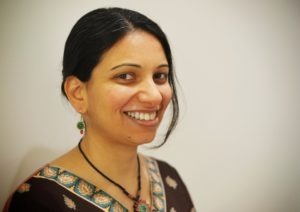
We’re asking different writers, artists and others to share some of their current favorites. This week we feature picks from writer, activist and engineer Sangamithra Iyer who is the author of The Lines We Draw, a short ebook recently published by Hen Press, which examines boundaries — physical, biological, and ethical — regarding the use of chimpanzees in medical research. Her writing on primates has also been adapted into a TEDx Talk. Sangu is an Associate of the environmental action tank Brighter Green, where she has been writing about climate change and the globalization of factory farming and has a blog series Literary Animal: Reading India. Her work has appeared in n+1, Hippocampus Magazine, Satya, The L Magazine, Open City, and at Our Hen House. She’s working on a nonfiction book project that blends memoir, reportage and history that is set in Burma, India and the U.S. Follow her on Twitter @literaryanimal.
1. Intimate History, Minal Hajratwala and Writing from the Chakras
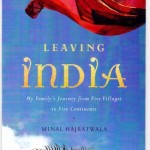 My New Year’s gift to myself was a month long “Writing from the Chakras” class with the fabulous Minal Hajratwala. I had admired Minal’s epic book Leaving India: My Family’s Journey from Five Villages to Five Continents for its scope and ambition and it’s mixture of journalism and poetry. I had the pleasure of learning more about her own process in writing what she calls “intimate history.” The Chakras class was intended to hone in links between body/mind/creativity and deal with blocks in our work. It was a great way to start a new year, tapping into fears and desires for writing, life and activism. The power chakra work was particularly helpful for me in writing new manifestos and trying to understand and sustain the source that fuels us to pursue the work we do.
My New Year’s gift to myself was a month long “Writing from the Chakras” class with the fabulous Minal Hajratwala. I had admired Minal’s epic book Leaving India: My Family’s Journey from Five Villages to Five Continents for its scope and ambition and it’s mixture of journalism and poetry. I had the pleasure of learning more about her own process in writing what she calls “intimate history.” The Chakras class was intended to hone in links between body/mind/creativity and deal with blocks in our work. It was a great way to start a new year, tapping into fears and desires for writing, life and activism. The power chakra work was particularly helpful for me in writing new manifestos and trying to understand and sustain the source that fuels us to pursue the work we do.
2. Coolie Woman by Gaiutra Bahadur 
I first heard Gaiutra Bahadur speak at AAWW’s Pageturner Festival last fall and was immediately drawn to her work. Another writer of “intimate history” Bahadur traces the story of her great grandmother and other “coolie” women like her who left India as indentured servants bound for British Guyana. She discusses how archival information privileges certain histories. “The archives leave gaps. Missing with few exceptions are the voices of the women themselves,” she writes in Coolie Woman. Bahadur used her background as a journalist to “interrogate the archives” summoning inquiry and imagination to write these stories. The result is an impressive and important work of non-fiction that has just been long listed for the Orwell Prize.
3. Roxane Gay
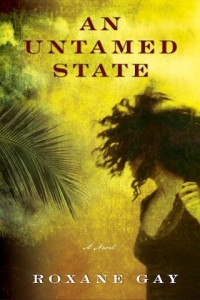 I’m super excited about Roxane Gay’s upcoming books, Bad Feminist and An Untamed State. I was first introduced to her work when a friend told me I needed to read her short story “North Country,” about a female civil engineering professor. I was hooked and kept discovering amazing pieces by her. Gay came to New York City recently and spoke at a Women Action Media mentoring event where she talked about everything from her writing process, experiences with microagression to where Sheryl Sandberg got it right in Lean In.
I’m super excited about Roxane Gay’s upcoming books, Bad Feminist and An Untamed State. I was first introduced to her work when a friend told me I needed to read her short story “North Country,” about a female civil engineering professor. I was hooked and kept discovering amazing pieces by her. Gay came to New York City recently and spoke at a Women Action Media mentoring event where she talked about everything from her writing process, experiences with microagression to where Sheryl Sandberg got it right in Lean In.
As someone transitioning into more fame/recognition, Gay discussed the responsibility of gaining a platform and sharing the ladder to give voices to others. Toward that end, she spearheaded an effort to complement the VIDA Count to track the number of books reviewed by people of color, has blogged about Urgent Unheard Stories over at The Nation, and has curated a feminists of color series at Salon.com. She told us at the WAM event, “Be aware of the barriers that are out there, but don’t them limit you” Gay is a brilliant writer and a model for good literary citizenship.
4. Louise DeSalvo and The Art of Slow Writing 
I once heard Louise DeSalvo say that in our high paced digital age, the act of slow writing is a radical act. I am so fortunate to have studied with this master during my creative writing MFA program at Hunter College. Louise approaches writing like an apprentice, studying the craft and creative habits of other writers and documenting her own writing process. Over the years, she’s compiled so much wisdom and insight into every aspect of the writing life. I often hear her voice in my head. “Writers are both labor and management,” she’d say when planning writing schedules. When I’m drafting a pitch or proposal, I hear her say, “Don’t negotiate against yourself.” And at a Q&A after a reading or panel discussion, I remember this other gem of wisdom: “Never call on the first person to put up their hand. Wait for second hand.” The first person usually doesn’t have a question, but rather a diatribe.
I’ve learned from Louise that our stories take time and our process is also a part of our story. She has inspired me to be a more generous reader, panning for possibilities rather than criticism when reading my work and others. This year St. Martin’s Press will publish her book, The Art of Slow Writing: Reflections on Time, Craft, and Creativity and it is going to be awesome, full of generous wisdom and guidance from someone entrenched in this radical act.
5. The Struggle to Keep Cooper Union Free
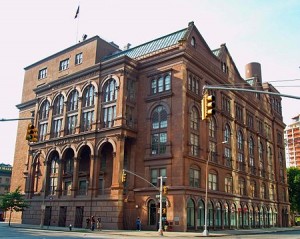 “Not everything is about Cooper Union,” my husband has often reminded me over the past few years, when the controversy over tuition at my alma mater subsumed so much of my time and writing. For anyone familiar with trying to mend the rift between the ideals and lived reality of a promising yet imperfect institution, there was something that was going on here that spoke to a larger truth. What can we learn from this?
“Not everything is about Cooper Union,” my husband has often reminded me over the past few years, when the controversy over tuition at my alma mater subsumed so much of my time and writing. For anyone familiar with trying to mend the rift between the ideals and lived reality of a promising yet imperfect institution, there was something that was going on here that spoke to a larger truth. What can we learn from this?
Stay tuned for the theatrical release in June 2014 of Andrew Rossi’s film Ivory Tower, which tackles many of the issues facing higher education and prominently features the Students for a Free Cooper Union. Also on Sunday April 13, the Cooper Union Alumni Association is hosting its first ever Peter Cooper Block Party. In the spirit of Cooper, this street fair promoting, science, art and history will be free and open to all.
Bonus: Thiru Kumar of NY Dosas will be serving up amazing vegan street food.
6. Plastic Cow Project
The Plastic Cow Project is drawing attention to the crisis of plastic in India and its detrimental impact on animals, particularly street cows, who forage on garbage. The project has funded surgeries to remove plastic lodged in cows’ rumen, advocates for a ban on plastic, and has created a documentary on this subject.
7. Paradigm Shift — Vegan Café, Restaurant and Activist Center in Bangalore
I can’t wait for my next trip to India to check out Sowmya Reddy’s new vegan joint in Bangalore — Paradigm Shift. In addition to yummy food and pastries, the restaurant also doubles as a community and activist space, hosting events related to environmentalism, animal rights and social justice.


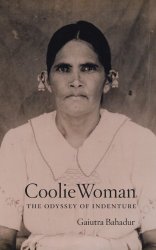
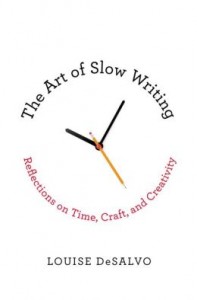












3 thoughts on “Quick Picks: Writer, Activist and Engineer Sangamithra Iyer”
Comments are closed.